detail profile kirill serebrennikov
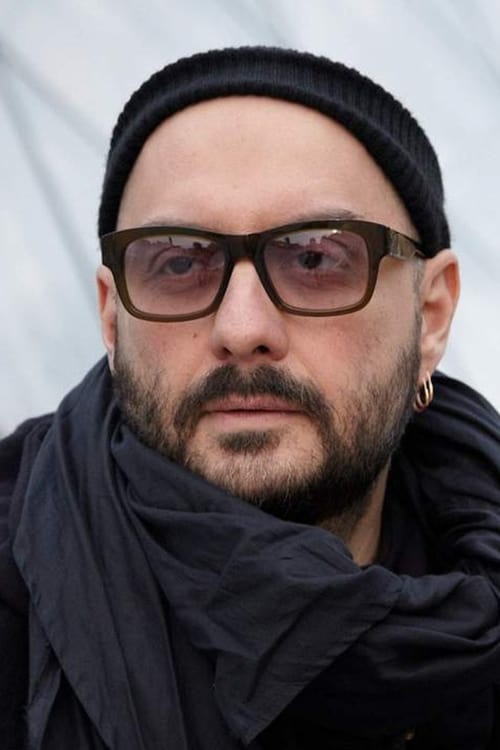
Kirill Serebrennikov
Кирилл Серебренников
atau dikenal sebagai
Riwayat Hidup
Kirill Semyonovich Serebrennikov (Russian: Кирилл Семёнович Серебренников; born 7 September 1969; Rostov-on-Don) is a Russian stage and film director and theatre designer.
Since 2012, he has been the artistic director of the Gogol Center in Moscow.
He has been described as one of Russia's leading theatre directors.
Serebrennikov was born in Rostov-on-Don, Russian SFSR to a Jewish father and a Ukrainian mother.
Having graduated from Rostov State University with majors in physics in 1992.
Serebrennikov had no formal theatre education prior to his stage director debut in 1994.
He went on directing music videos and commercials.
In 2001, he staged his first production in Moscow.
Serebrennikov has staged drama productions in Moscow Chekhov Theatre, Latvian National Theatre, Theatre of Nations.
He has been active in opera staging productions for the Mariinsky Theatre, and the Bolshoi Theatre in Russia, where he has also been a stage director and a designer for a ballet, Komische Oper Berlin and Stuttgart Opera in Germany.
Serebrennikov is one of the artistic directors of Territory Festival in Moscow.
Since 2008, he is a professor of the Moscow Art Theatre School, where he has a class of actors and directors.
His films have been screened at Cannes Film Festival, Locarno Film Festival, Rome Film Festival, and the Warsaw International Film Festival where his film Yuri's Day received the Grand Prix.
In 2012, he was appointed artistic director of The Gogol Center.
On 23 May 2017, Serebrennikov's apartment and the Gogol Center facilities were raided by law enforcement agencies in connection with an alleged embezzlement at the Seventh Studio, a non-profit organization established by Serebrennikov.
While no charges against Serebrennikov have been filed, some of Russia's most prominent cultural figures saw the publicized raid of his apartment as a political gesture, discouraging Serebrennikov and others from criticizing the government.
(Serebrennikov had criticised the 2014 Russian annexation of Crimea and has spoken out in support of Russia’s LGBT community.
) On 22 August 2017, Serebrennikov was detained by the Investigative Committee of Russia, suspected of masterminding a fraud scheme involving a state subsidy the Seventh Studio received from the government of Russia from 2011 to 2014.
In a verdict condemned by the Human Rights Watch, Serebrennikov was convicted in June 2020, fined, and given a suspended sentence.
Despite being in a supposed house arrest in Russia, Serebrennikov arrived to Hamburg in January 2022.
Info Pribadi
Peran Yang Di Mainkan Kirill Serebrennikov
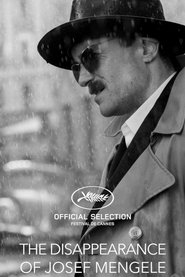 Shortly after the end of the...
Shortly after the end of the...The Disappearance of Josef Mengele 2025
Shortly after the end of the Second World War, Josef Mengele, the Nazi doctor who had practiced in the Auschwitz extermination camp, managed to escape from Germany. With the help of SS soldiers and the support of wealthy South American families, he went into hiding in Argentina. From Buenos Aires to Paraguay, with stops in the Brazilian jungle, the so-called Angel of Death organized his methodical disappearance and escaped any form of trial.
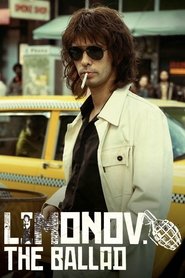 A revolutionary militant a thug an...
A revolutionary militant a thug an...Limonov: The Ballad 2024
A revolutionary militant, a thug, an underground writer, a butler to a millionaire in Manhattan. But also a switchblade-waving poet, a lover of beautiful women, a warmonger, a political agitator, and a novelist who wrote of his greatness. Eduard Limonov’s life story is a journey through Russia, America, and Europe during the second half of the 20th century.
 In 1982 Wim Wenders asked 16 of his...
In 1982 Wim Wenders asked 16 of his...Room 999 2023
In 1982, Wim Wenders asked 16 of his fellow directors to speak on the future of cinema, resulting in the film Room 666. Now, 40 years later, in Cannes, director Lubna Playoust asks Wim Wenders himself and a new generation of filmmakers (James Gray, Rebecca Zlotowski, Claire Denis, Olivier Assayas, Nadav Lapid, Asghar Farhadi, Alice Rohrwacher and more) the same question: “is cinema a language about to get lost, an art about to die?”
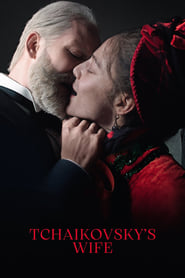 Antonina Milyukova is a beautiful and...
Antonina Milyukova is a beautiful and...Tchaikovsky's Wife 2022
Antonina Milyukova is a beautiful and bright young woman, born in the aristocracy of 19th century Russia. She could have anything she'd want, and yet her only obsession is to marry Pyotr Tchaikovsky, with whom she falls in love from the very moment she hears his music. The composer finally accepts this union, but after blaming her for his misfortunes and breakdowns, his attempts to get rid of his wife are brutal. Consumed by her feelings for him, Antonina decides to endure and do whatever it takes to stay with him. Humiliated, disgraced and discarded, she is slowly driven to madness.
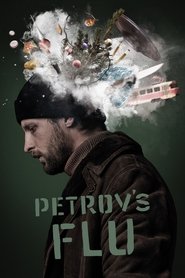 A day in the life of...
A day in the life of...Petrov's Flu 2021
A day in the life of a comic book artist and his family in Russia. While suffering from the flu, Petrov is carried by his friend Igor on a long walk, drifting in and out of fantasy and reality.
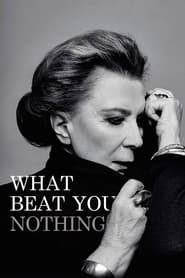 Alla Demidova ranks among the greatest...
Alla Demidova ranks among the greatest...What Beat You Nothing 2021
Alla Demidova ranks among the greatest actresses to have graced the Russian-language stage over the past six decades, as well as screens big and small. She's famous for her tragic characters. Perhaps because she, above all, understands the world as a realm of worries and sorrow?
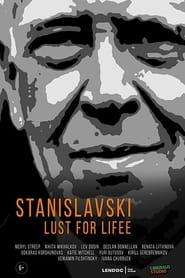 A story about Konstantin Sergeievich Stanislavski...
A story about Konstantin Sergeievich Stanislavski...Stanislavski: Lust for Life 2021
A story about Konstantin Sergeievich Stanislavski, a twentieth-century theatre genius. Owing to his powerful extraordinary talent he managed to stay a true artist and a free spirit within the harsh Soviet system. In the film contemporary theater and film directors (Kirill Serebrennikov, Katie Mitchell, Lev Dodin and others) show how Stanislavski's method affects their everyday work. Each of the directors finds his or her own reflection in the mirror of his genius. In search of an answer to the question whether modern theatre really needs Stanislavski they discover that art lacks its most essential part – the human being.
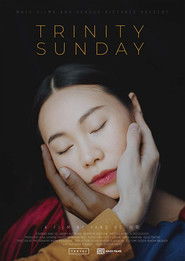 In a love triangle there are...
In a love triangle there are...Trinity Sunday 2019
In a love triangle there are always three participants: the torturer, the saviour and the victim, who change roles depending on the situation. There is no room to condemn anyone, there is no right and no guilt. A betrayal can happen with everyone. Margo admits to her husband George that she betrayed him with her student Anton. Her confession changes the life of three people. At first it seems that it is a usual story, but gradually it emerges that everything that happens to Margo has a deeper meaning. She begins to understand God, family, and love. She starts to realize how these values correspond with the eastern world, where she has grown up, and with the western world where she now lives.
 Leningrad one summer in the early...
Leningrad one summer in the early...Leto 2018
Leningrad, one summer in the early eighties. Smuggling LPs by Lou Reed and David Bowie, the underground rock scene is boiling ahead of the Perestroika. Mike and his beautiful wife Natasha meet with young Viktor Tsoï. Together with friends, they will change the destiny of rock’n’roll in the Soviet Union.
 On the same day that Stalin...
On the same day that Stalin...Gogol Online: Stalin's Funeral 2016
On the same day that Stalin was buried, Sergei Prokofiev's funeral took place completely unnoticed. And if the farewell to the composer quietly went against the backdrop of the farewell to the dictator that swept the whole country, then in the play everything is the opposite - Prokofiev's music is in the center, and it is interrupted by the stories of those people who would probably ignore Stalin's funeral and went to say goodbye to the great composer.
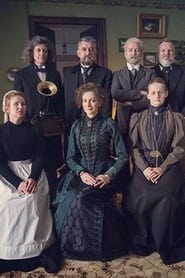 Yuli Ivanovich Blok is a music...
Yuli Ivanovich Blok is a music...Phonograph 2016
Yuli Ivanovich Blok is a music lover and enthusiast of early sound recording, who in 1889 was the first to bring Edison's phonograph to Russia, came up with the idea to record the great pianist Anton Rubinstein's playing on a phonograph. But the pianist flatly refused to sign up. Then those present, among whom was Pyotr Ilyich Tchaikovsky, just started messing around with the device, recording everything that comes to mind. The film is based on a famous case that occurred in January 1890.
 Henry a newly resurrected cyborg who...
Henry a newly resurrected cyborg who...Hardcore Henry 2015
Henry, a newly resurrected cyborg who must save his wife/creator from the clutches of a psychotic tyrant with telekinetic powers, AKAN, and his army of mercenaries. Fighting alongside Henry is Jimmy, who is Henry's only hope to make it through the day. Hardcore Henry takes place over the course of one day, in Moscow, Russia.
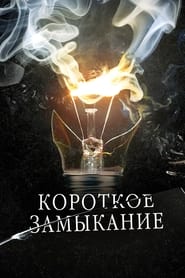 Five short love stories which become...
Five short love stories which become...Crush 2009
Five short love stories, which become a statement of the directors about love. A shoemaker, a reporter, a pavement hooker-in, a psychiatric patient and a young man released from prison are the main characters of the film, heroes in a time of no heroes. All of them have the important qualities of being openhearted and not afraid of loving.
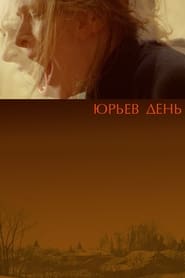 Before leaving Russia and moving to...
Before leaving Russia and moving to...Yuri's Day 2008
Before leaving Russia and moving to Western Europe, famous opera singer Lyuba travels to her hometown to say goodbye and show her teenage son around. But Andrey, Lyuba’s son, disappears and she must stay in the place she hates the most to search for him. A piercing exploration of identity and transformation, against the backdrop of a Russian hinterland, surrounded by Orthodox churches and snow.
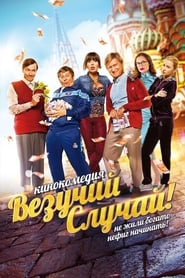 A group of friends suddenly hit...
A group of friends suddenly hit...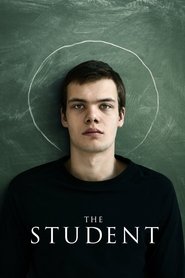 A high school student becomes convinced...
A high school student becomes convinced...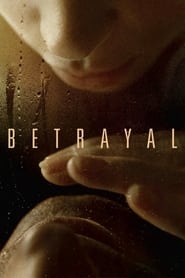 While examining one of her patients...
While examining one of her patients...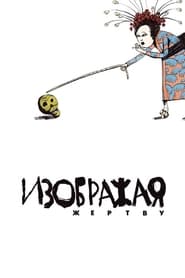 A young man drops out of...
A young man drops out of...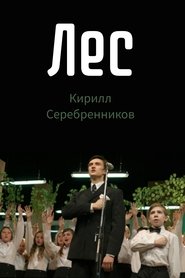 Alexander Ostrovskys textbook comedy in the...
Alexander Ostrovskys textbook comedy in the...